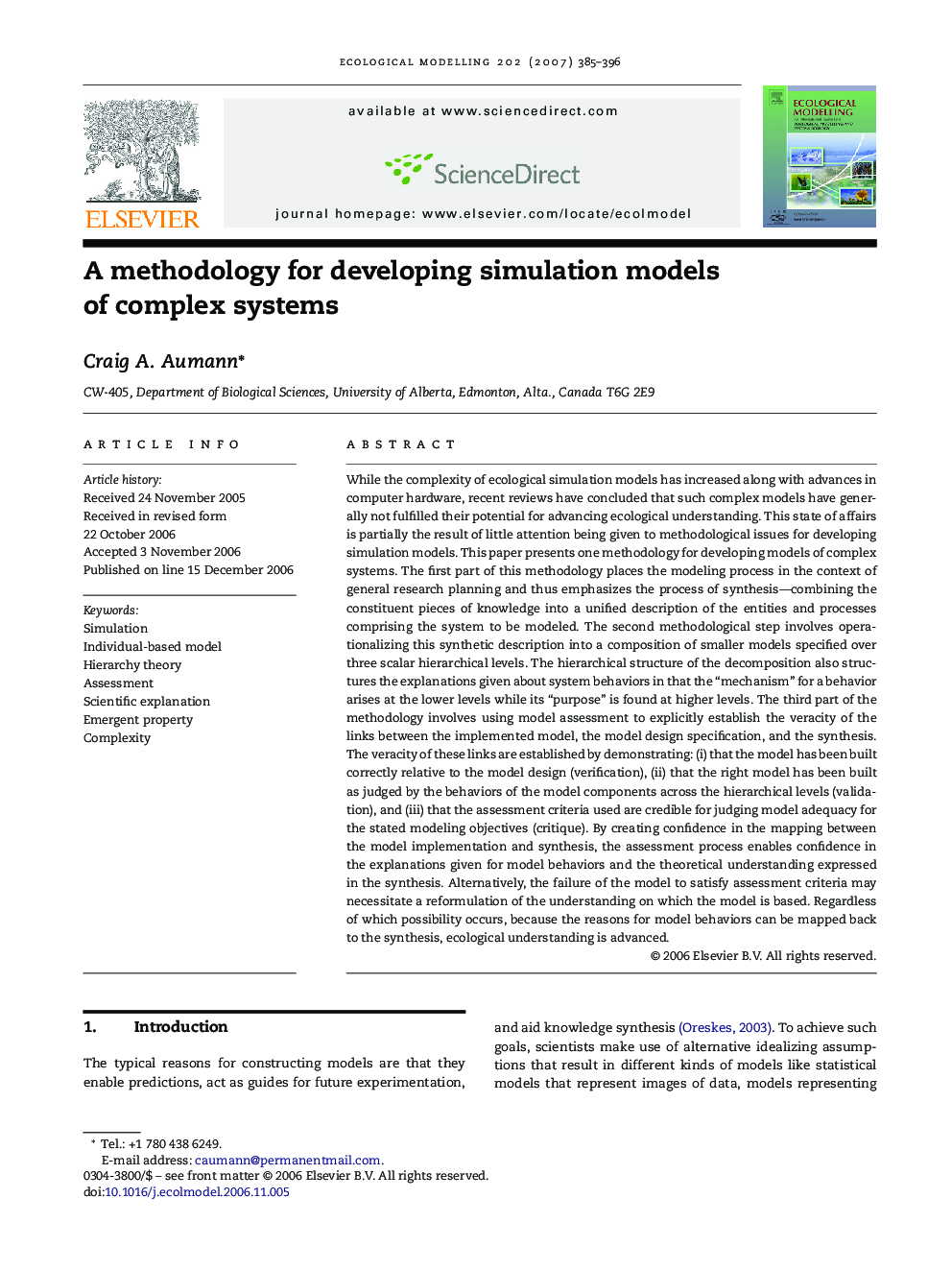| Article ID | Journal | Published Year | Pages | File Type |
|---|---|---|---|---|
| 4378669 | Ecological Modelling | 2007 | 12 Pages |
While the complexity of ecological simulation models has increased along with advances in computer hardware, recent reviews have concluded that such complex models have generally not fulfilled their potential for advancing ecological understanding. This state of affairs is partially the result of little attention being given to methodological issues for developing simulation models. This paper presents one methodology for developing models of complex systems. The first part of this methodology places the modeling process in the context of general research planning and thus emphasizes the process of synthesis—combining the constituent pieces of knowledge into a unified description of the entities and processes comprising the system to be modeled. The second methodological step involves operationalizing this synthetic description into a composition of smaller models specified over three scalar hierarchical levels. The hierarchical structure of the decomposition also structures the explanations given about system behaviors in that the “mechanism” for a behavior arises at the lower levels while its “purpose” is found at higher levels. The third part of the methodology involves using model assessment to explicitly establish the veracity of the links between the implemented model, the model design specification, and the synthesis. The veracity of these links are established by demonstrating: (i) that the model has been built correctly relative to the model design (verification), (ii) that the right model has been built as judged by the behaviors of the model components across the hierarchical levels (validation), and (iii) that the assessment criteria used are credible for judging model adequacy for the stated modeling objectives (critique). By creating confidence in the mapping between the model implementation and synthesis, the assessment process enables confidence in the explanations given for model behaviors and the theoretical understanding expressed in the synthesis. Alternatively, the failure of the model to satisfy assessment criteria may necessitate a reformulation of the understanding on which the model is based. Regardless of which possibility occurs, because the reasons for model behaviors can be mapped back to the synthesis, ecological understanding is advanced.
